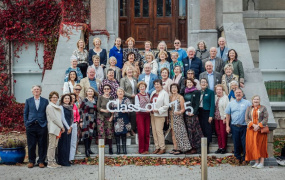Sexual Violence & Harassment (SVH) Supports
Student Supports
At Mary Immaculate College, we aim to give students a very positive experience but college life can also bring challenges, both personal and academic. MIC offers a range of holistic supports designed to help students if and when they may need them.
Mental Health Support for Third-Level Students in Ireland
Text MIC to 50808, anytime day or night. Visit www.text50808.ie
MIC Supports
Safeguarding
Designated Liaison Persons:
MIC Limerick
Dr Geraldine Brosnan, Director of Student Life; Email: Geraldine.Brosnan@mic.ul.ie
Kathleen Maher, Sexual Violence and Harassment Prevention and Response Manager Email: Kathleen.Maher@mic.ul.ie
MIC Thurles
Paula Hourigan; Email: Paula.Hourigan@mic.ul.ie
Gender Orientation Support
MIC Limerick
Professor Lorraine McIlrath; Director of Equality, Diversity, Inclusion and Interculturalism; Email: edii@mic.ul.ie
MIC Thurles
Tony Ó Floinn, Lecturer; Email: Tony.OFloinn@mic.ul.ie
External Support Services
The following organisations can also offer specialist support:
- Text 50808
Free 24/7 Mental Health/Counselling Support in a Crisis - Text ‘HELLO’ to 50808 / text50808.ie
- Samaritans
National Helpline - 116 123 - Limerick Rape Crisis Centre
Limerick Rape Crisis Centre - 1800 311 511
Rape Crisis Centre’s 24-hour helpline - 1800 77 8888
Your local Rape Crisis Centre/Network
- HSE - Rape, sexual assault and where to get help
Sexual Assault Treatment Units
- Women’s Aid
24-hour helpline - 1800 341 900
- Men’s Aid
National Confidential Helpline – 01 554 3811
- Your local Gardaí
- HSE My Options
Freephone - 1800 828 010
- LGBT Ireland
National Helpline - 1890 929 539
Staff Supports
MIC Supports
Employee Assistance Service:
The Employee Assistance Service (EAS) is a confidential support service available free of charge. You can contact the EAS by free phoning 1800 814 243 or Whats App and SMS: Text "Hi" to 087 369 0010.
Human Resources
You may also contact the Human Resources Office for advice.
External Support Services
The following organisations can also offer specialist support:
- Text 50808
Free 24/7 Mental Health/Counselling Support in a Crisis - Text ‘HELLO’ to 50808 / text50808.ie
- Samaritans
National Helpline - 116 123
- Limerick Rape Crisis Centre
Phone: 1800 311 511
Rape Crisis Centre’s 24-hour helpline - 1800 77 8888
Your local Rape Crisis Centre/Network
- HSE - Rape, sexual assault and where to get help
Sexual Assault Treatment Units
- Women’s Aid
24-hour helpline - 1800 341 900
- Men’s Aid
National Confidential Helpline – 01 554 3811
- Your local Gardaí
- HSE My Options
Freephone - 1800 828 010
- LGBT Ireland
National Helpline - 1890 929 539
MIC Library Resources
As part of MIC's commitment to build and continually support a safe culture to end all forms of sexual harassment and violence, and implement the National Framework for Consent, MIC Libraries have created a subject guide. This Guide provides up to date information, available print and online resources, and details of supports available to anyone who may need them.
- Student Supports
- Staff Supports
- MIC Library Resources







